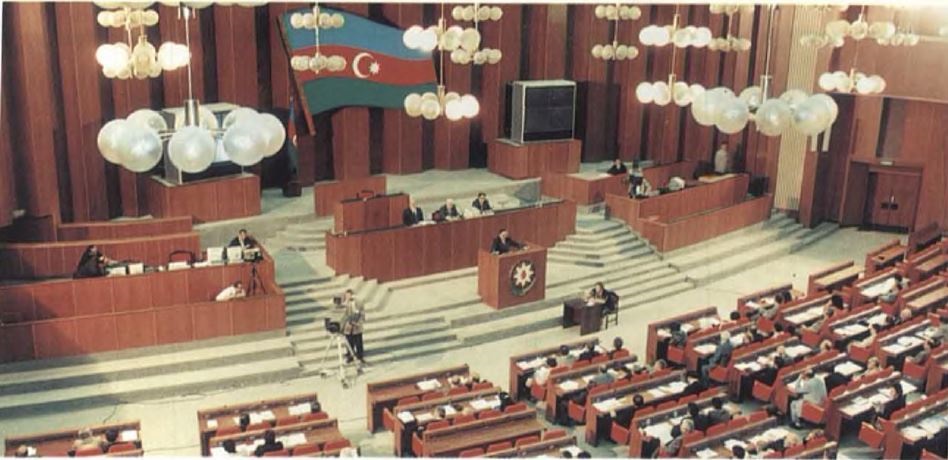Azerbaijan is a presidential republic, meaning the President of Azerbaijan holds the executive power, while the legislative power is vested in a unicameral parliament, known as the Milli Majlis. The judicial branch operates independently of the other two branches, ensuring the rule of law and the protection of citizens’ rights and freedoms. This structure is designed to balance power, promote efficiency in governance, and safeguard democratic principles.
The Executive Branch
At the helm of the executive branch is the President of Azerbaijan, elected by the people for a seven-year term. The President’s responsibilities are vast, encompassing the direction of domestic and foreign policies, the appointment of the Cabinet of Ministers, and serving as the commander-in-chief of the armed forces. The President also has the authority to veto legislation, call referendums, and issue decrees that have the force of law.
The Cabinet of Ministers, led by the Prime Minister, is the highest executive body and is responsible for implementing state policies, drafting legislation, and overseeing the general administration of the state. The Prime Minister is appointed by the President and, together with the Cabinet, plays a crucial role in the country’s day-to-day governance, economic management, and social welfare programs.
The Legislative Branch
The legislative power in Azerbaijan is held by the Milli Majlis, or National Assembly. This unicameral parliament consists of 125 members who are elected to serve five-year terms. The Milli Majlis is tasked with drafting, debating, and passing legislation that governs the country. It also approves the state budget, ratifies international treaties, and has the power to declare war and peace. Additionally, the Milli Majlis can impeach the President under specific constitutional conditions, highlighting its significant role in the nation’s checks and balances system.
The Judicial Branch
The independence and impartiality of the judicial branch are cornerstones of Azerbaijan’s legal system. The Constitutional Court, Supreme Court, and Economic Court are at the apex of this branch. The Constitutional Court interprets the Constitution, ensuring laws and regulations comply with constitutional norms. The Supreme Court is the highest instance for civil, criminal, and other cases under Azerbaijani law, while the Economic Court handles commercial and business disputes.
Courts of general jurisdiction and administrative-economic courts operate at the regional level, dealing with local legal matters and disputes. Judges are appointed by the President, with the Milli Majlis playing a role in the appointment process for higher courts, emphasizing the interconnectedness of Azerbaijan’s governmental branches.
Azerbaijan’s government structure is a testament to the nation’s commitment to democratic principles, the rule of law, and the separation of powers. While navigating the complexities of modern governance, Azerbaijan continues to refine its political and legal systems to better serve its people and maintain its sovereignty on the international stage. The interplay between the executive, legislative, and judicial branches ensures a dynamic governance model that strives to balance authority, promote transparency, and uphold citizens’ rights and freedoms. As Azerbaijan progresses, the evolution of its government structure will undoubtedly continue to be a subject of interest and importance, reflecting the nation’s aspirations and challenges in the 21st century.

